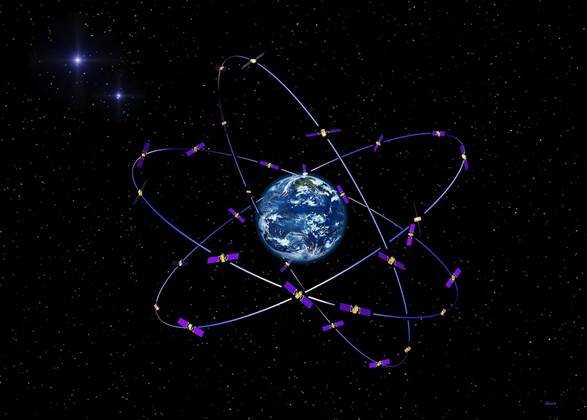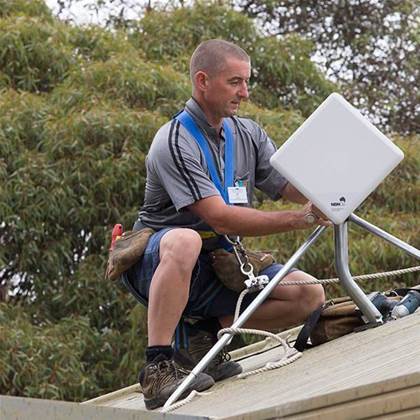This article has been reviewed according to Science X's editorial process and policies. Editors have highlighted the following attributes while ensuring the content's credibility:
fact-checked
trusted source
proofread
Euro global navigation system passes first tests
Europe's satellite-based positioning system has demonstrated a working accurate location and timing service for government and other authorised users, the European Space Agency (ESA) said yesterday.
 Illustration of Galileo satellites orbiting the Earth. Source: ESA
Illustration of Galileo satellites orbiting the Earth. Source: ESA According to ESA, European Union member states have started independent testing of the Public Regulated (PRS) positioning and timing service which is broadcast securely from the Galileo navigation satellites.
Despite only a small number of Galileo satellites deployed so far, the PRS is able to achieve autonomous positioning accuracy below ten metres. This is expected to improve substantially when more Galieo satelites have been deployed.
PRS was set to be enabled when the Galileo system is fully operational but EU member states had expressed strong interest in the service, and the ESA decided to allow early access to it this year.
 ESA Alphasat launch with the Ariane rocket
ESA Alphasat launch with the Ariane rocketGalileo will eventually comprise 30 satellites orbiting the Earth at 23,222 kilometres. The positioning system is intended to provide technological independence for the European Union of the United States Global Positioning System (GPS) and the Russian Glonass, while remaining interoperable with the latter two.
One of the main differentiators between the European and Russian and American positioning systems is that Galileo will be able to provide feedback to users. In rescue situations, Galileo will be able to notify users in distress that their situation has been detected and that help is on its way.
Galileo was opposed by the United States which wanted the ability to shut down positioning systems in military scenarios. However, while Europe initially folded under US pressure, the union decided to go ahead with the project and create its own, independent positioning system that could not be shut down by outside powers.
Four Galileo satellites have been launched so far, with a another deployment of a further four tentatively set to take place next year.
The entire system is expected to cost over €3 billion (A$4.4 billion), including ground infrastructure, and is scheduled to be competed by 2019.



















